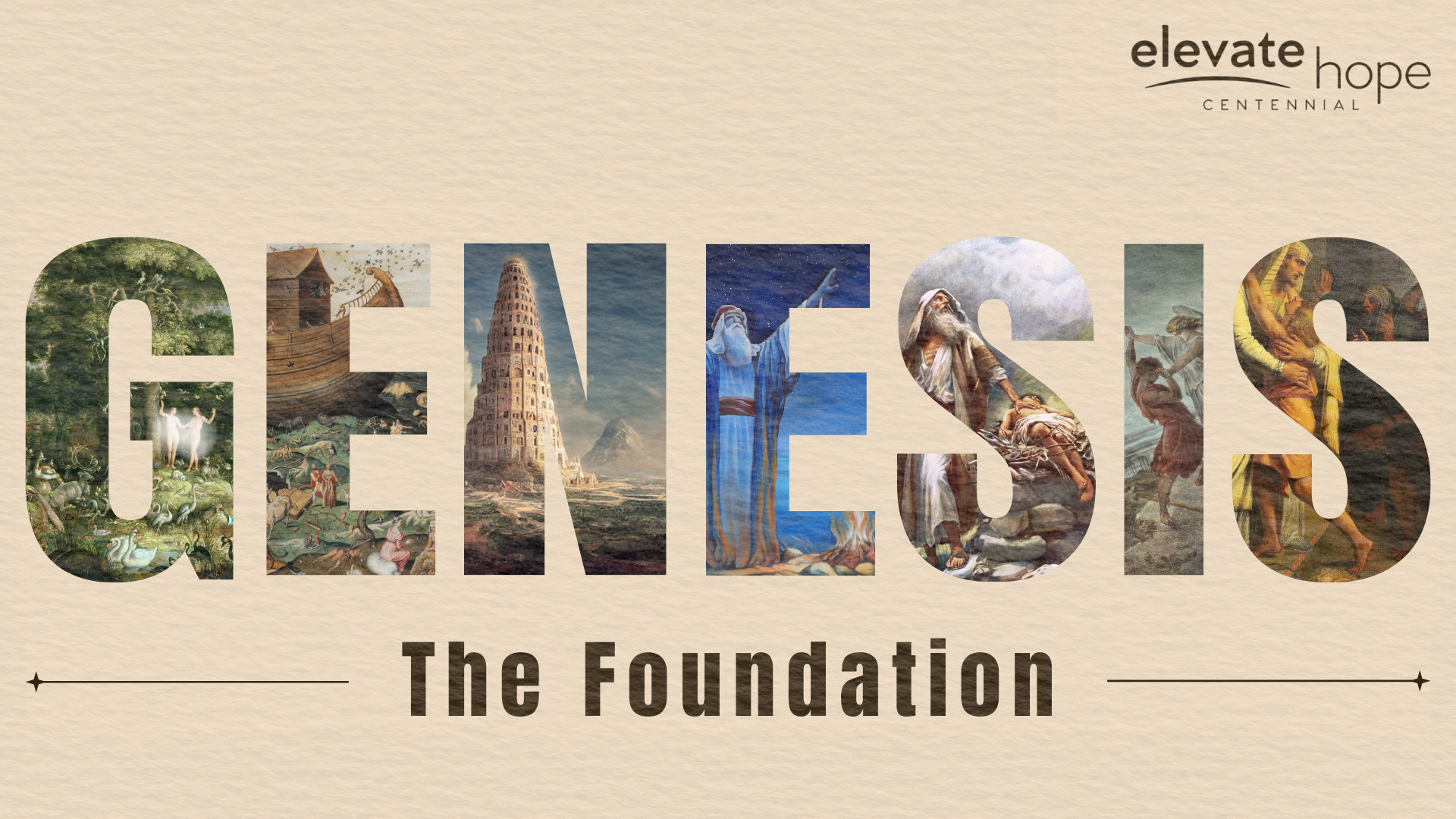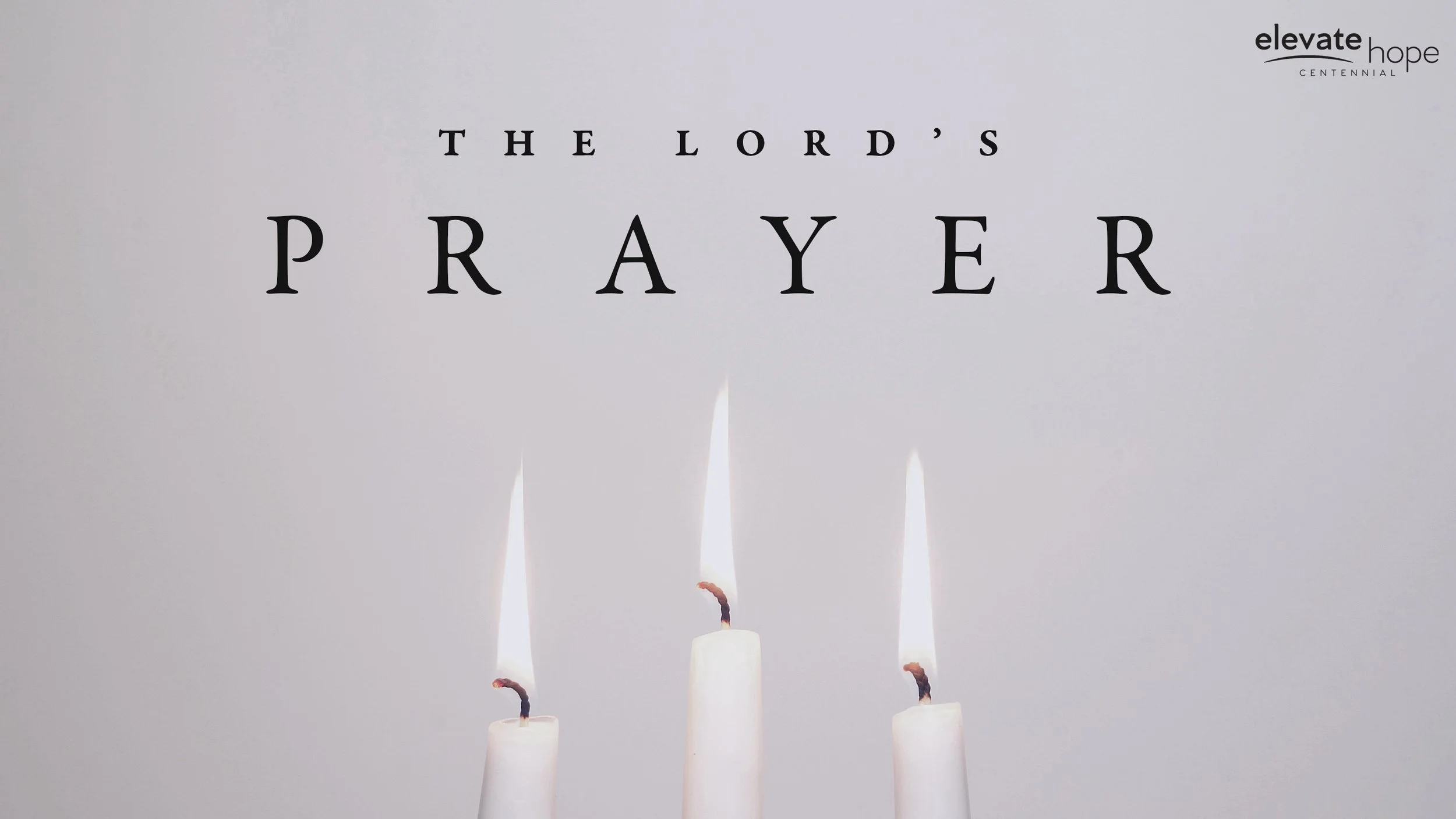Sermon Series
- Becoming the Gospel - 1 and 2 Thessalonians
- Building A Summer Body
- Building Healthier Relationships
- Disconnected
- Follow the Star
- Genesis: The Foundation
- God's Story
- Joy To The Troubled World
- Left Right or Light?
- Missing Home
- Our Motto and Mission
- Prayer
- Psalms: Language For Life The Way It Is
- Renewed
- Romans: The Power of the Gospel
- Ruth: The Advent of A Redeemer
- Seen
- Stuck Inside
- The Advent of Christ
- The Book of Acts: Live Boldly
- The Book of Daniel
- The Book of Ephesians
- The Book of James
- The Book of Jonah: Running Away From God
- The Book of Judges
- The Book of Malachi
- The Book of Matthew
- The Gospel of Mark: Seeing Jesus
- The Holy Spirit
- The Life You've Always Wanted
- The Miracles of Christmas
- The Secret To Healthy Relationships
- The Sin of Racism
- The Spiritual Life
- The Ten Commandments
- Thrive: A Summer Series
- Twenty Twenty What?
- We Need Christmas
- Who Am I?
- Why Pray?
The Sacrificial System and The Glory of The Lord - Leviticus 9:1-7 & 22-24
Join us this Sunday in Leviticus 9 as we look at the Old Testament sacrificial system and the promise of God’s glorious presence in our worship (ft. Colin Campbell, Member at Elevate Hope Centennial).
Genesis: The Foundation - Genesis 1:6-19
Colorado has some great rock formations: Horsetooth Rock, Castle Rock, Kissing Camels, Two Faced Rock. When you look at them from a distance and a certain angle, they look like someone carved out a horse’s tooth, a camelor two faces. But when you finally reach the rock at the end of your hike, you realize that upon closer examination it looks nothing like those things. And really it’s just wind, erosion and your mind connecting the dots that gave it the appearance of a shape. But imagine that you are a hiker who has no idea about American history or landmarks, or maybe a teenager who only hangs out in the basement and didn’t pay attention in history class, and you were hiking in South Dakota and came across Mt. Rushmore with its carved faces of four Presidents. Just from observing them from afar, and not even exploring the tunnels and staircases within, you would have to conclude that they were made by an intelligent designer. So what do we conclude when we look at a human being? Can we say that the design is only apparent and that even upon closer examination a human being is nothing more than something formed by accident? We will be talking about human life on day 6, but even looking at the seemingly ordinary parts of our world that our text shows us this morning—a firmament that regulates sunlight and climate, the balance of the ratio of water to land, plants and fruit bearing trees able to sustain generation upon generation of life, and heavenly bodies to regulate gravity, light, tides and time—all those things intricately working together for one purpose: so that life can flourish here where it cannot flourish anywhere else. Could it all just be here by chance? Or is there a Designer behind it all? Maybe you aren't sure about that yet. But if you are a follower of Christ, you believe that there is a Designer and you know who that Designer is. But the danger is that we don’t let His Design inform any other area of our life. Design seems like it only relates to Creation but design deeply points us to Christ as well; it creates in us a hope and a glory that far outweighs anything this life can throw at us.
The Grain Offering - Leviticus 2
Join us this Sunday as we learn about the grain offering in Leviticus 2 and its significance for the life of God’s people (ft. Colin Campbell, Member at Elevate Hope Centennial).
Genesis: The Foundation - Genesis 1:3-5
Genesis 1 claims that God created a universe of both space and matter, heavens and earth, bound in time with a beginning. And on what would be the first day, God adds the way that we would measure time and great distances: He creates light. It’s easy to imagine in the modern age that we know most of what there is to know about the universe. But in just five verses the Bible reveals how little we actually know. Senior NASA astrophysicist Dr. Deb Haarsma who is a Christian and former president of the BioLogos Institute says, “data from the W-MAP and Planck satellites has shown that 27 percent of the universe is dark matter, a scientific mystery that does not emit, reflect or absorb any light. We can detect it only by its gravitational effect on visible matter.” Dark matter is what holds galaxies and large cosmic structures together by providing the extra mass needed for them to form and spin without flying apart. But that’s just dark matter; the greatest part of the universe—68 percent of it—is what we call dark energy, an even more mysterious substance that drives how the universe expands. “For all our advances in physics and chemistry,” she says, “what we can see and know can only describe 5 percent of the universe. For the remaining 95 percent of the universe, we have no current explanation.” It turns out we understand light way better than we understand the darkness. But Genesis says that God understands them both, that He separates them for the blessing of His creation and that He names them both. And ultimately, the fact that God names them both shows us that God has authority over both light and dark; what He has made He has control over.
Genesis: The Foundation - Genesis 1:1-2
Last week we learned that Genesis 1 is all about authority. If God made all things, then He is in authority over all things. He tells us how to best use the things He has made, and in humility we submit to His design. And that humility, that comes from the authority and majesty of God in creation, is what leads us into wonder at God’s creation. When was the last time something in God’s Creation led you into wonder? The universe contains enough wonder to captivate us all and it is wonder that drives us to remember our place in it. In Job 38, God uses the creation to remind Job that he has forgotten both authority and wonder. Later on Job responds in wonder at God’s authority which leads him into wonder at creation itself. Throughout the first part of our Genesis series we will talk about science and creation. When properly used, studying God’s creation through science leads us into wonder which is good. But science was never meant to be our ultimate authority. Those who misuse science say that human reason alone is to be our ultimate authority. But Genesis 1 says that God alone, the One who gave human beings our reason, is to be our highest authority. It’s a tragedy that science and Genesis 1 have been pitted against each other, that they are seen as competing narratives where only one is possible. Science can never fully prove or disprove the Bible, and the Bible was not written to counter and disprove science. But as we will see this morning, it is the Bible itself that launches, grounds and sanctifies science. It is Genesis 1 that makes science even possible. The Bible is not a science book but it is not an unscientific book. It calls us to get wisdom, to get knowledge and to get understanding not just of spiritual things but of the world our Father created. The Bible invites us to observe and to wonder in humility; Proverbs, Psalms, Job, Ecclesiastes are all scientific in their nature. They call us to observe and catalog how things are made and how they work, and from that observation to come to the right conclusion of why we were made and how life works.
Genesis: The Foundation - Genesis 1:1
We are starting a new series through the book of Genesis. Genesis isn’t just book one in a series of 66 books in the Bible; Genesis is the foundation of every idea, every promise, every instruction, hope and truth found in all the books that come after it. We cannot fully understand ourselves without understanding Genesis 1:1. We cannot fully understand God without understanding Genesis 1:1. Nor can we truly understand sin or redemption or brokenness or identity or purpose or wisdom or goodness or justice or anything else. It is vitally important, if we are to ever really fully understand anything in the Bible or in the world in general, that we first understand the full meaning of Genesis 1:1, “In the beginning, God created the heavens and the earth.”
Good Advice or Good News? - Luke 12:22-31
Each year the New York Times puts out a list of the best advice from 2025. Some are perennial staples of wisdom, while others are simply witty and entertaining. But the deepest ones that I read are also the ones that left me lacking: “don’t think harder, breathe deeper,” “always imagine that everything will work out,” and “stop trying to calm the storm and calm yourself.” Those are great thoughts, but there is no power in them. Each year the YouVersion Bible App puts out, not the year’s best advice, but which verse was clicked on and read the most by Christians in every country around the globe. This year, when all of humanity scattered around the globe turned to the Bible for something, the verse they turned to most was was Isaiah 41:10, “Fear not, for I am with you; be not dismayed, for I am your God; I will strengthen you, I will help you, I will uphold you with my righteous right hand.” With all the good advice we have, relief from fear and anxiety is our greatest felt need as human beings. And the difference between God’s Word to his people in Isaiah 41 and advice given by my fellow humans in the New York Times really struck me this year as 2025 comes to a close. The Bible doesn’t give a lot of advice or just aim to increase our resolve It gives promises; it gives imperatives. And then the Holy Spirit who authored the Word gives us the power to live out the wisdom and heart of God as we are more and more conformed to the image of Christ. The Bible is the lamp for our feet and the power to walk on the path that it reveals. Good advice usually still depends on my own power to do it, in my own resolve and my own strength. So when God’s Word tells His children not to be anxious, it always gives us a Why, a How, and a Who.
Our Prince of Peace - Isaiah 9:6-7 & Ephesians 2:17-22
Join us this Sunday as we learn what it means for Jesus to be our peace, our Prince of Peace (ft. Colin Campbell, Member at Elevate Hope Centennial).
The Advent of Christ: Christ The Savior Is Born
Merry Christmas! There is something in the story of Christmas that brings us all here tonight, that draws us in. For many of us it’s a familiar story that draws us into things like wonder, joy and hope during this particular season each year. But the interesting thing about the story of Christmas from the Bible is that we end it just as the story is getting started! The Christmas story is the miraculous beginning of an even more miraculous story, a story that ends more gloriously than we could ever imagine. If all we read is the story of the angel’s visit, the shepherd’s joy, the wise men’s journey, we would never get the full Christmas story. We would miss out on the most amazing truth about us and the most amazing truth about God that only just began that first Christmas morning. So what is the whole story? What happens after the shepherds leave, the wise men go back, the angels return to heaven and, like your house, there is now plenty of room at the inn because everyone has gone home? How does the Christmas story end? Well, the angels in the story actually tell Mary, Joseph and the shepherds the whole story. Hidden in their glorious pronouncements is the whole story of what Christmas is all about: it is about Immanuel. A way, a chance for God to be with us again and we with Him. That all people can know the great joy of being close to their Heavenly Father again; tidings of great joy for all people. Tidings of great joy for those who are not perfect and are tried of pretending to be. We need a Savior because we were created to be with our Creator God in vital, purpose-giving, life-restoring relationship. And all of our ills, all of our brokenness in us and around us in our world comes from living life separated from God. What the angels announce that first Christmas is no less than God’s offer of forgiveness, that He will send us Himself. The infinite God will become an infant for us. He will be our Savior who will bring us back into abundant life with the One who made us. It is His forgiveness that will save us out of the lostness and brokenness of our sin against Him. The angel’s message on that first Christmas was filled with hope for us; the hope of our Savior, now come to us, born of God and born as one of us. In the angel’s message is the whole story of our forgiveness. And because forgiveness is always costly, our forgiveness will require both the joy of the cradle and also the pain of a cross.
The Advent of Christ: Love in Christ - John 3:16-21 & 1 John 4:9-10
A survey once asked a group of 90-year olds to define what love is. One man said of his wife of 67 years: “It’s not like the Hallmark Channel. She was beautiful of course…but she was my best friend. And that made our love take on a different sort of glow.” Another gentleman said, “I want to go downtown, but she wants to go to Westmount Square. So, we went to Westmount Square, and I'm very happy. That’s love.” Another woman said: “We all have our flaws and baggage we bring into love. Love is giving each other a generous baggage allowance.” The Apostle John was also in his 90’s when he wrote his own definition of love: “Anyone who does not love does not know God, because God is love” (1 John 4:8). As we finish out the Advent season in our fourth week, we join with the church around the world in focusing on love, the love expressed in the gift of Jesus. We started our Advent series in John 1, and it’s back to John’s gospel in chapter 3 that gives us a definition of the love that the Father put on display for us at that first Christmastime.
The Advent of Christ: Joy in Christ - Matthew 2:1-12 & Luke 2:8-20
The Christmas story is one filled with joy. Both gospel accounts of the birth of Jesus, in Matthew 2:10 and Luke 2:10, use the phrase “Mega Joy” when referring to the events surrounding the birth of the Savior. The word megàles in Greek, which we have shortened to “mega” in English means: “the maximum range of what is actually possible.” That’s a lot of joy! That phrase “Mega Joy” is only used in the gospels at the birth of Jesus and only again at the resurrection and ascension of Jesus. “Mega Joy” always centers around Jesus. This morning we are going to take a look at one of those times “Mega Joy” is used in the gospels, when the wisemen finally saw the newly born king. Their journey will tell us a lot about our journey to joy as well.
The Advent of Christ: Peace in Christ - Isaiah 9:2-7 & Luke 2:8-14
It’s ironic that many of our traditional Christmas passages talk about peace. And yet, the season in which we celebrate the birth of the Prince of Peace Himself is often the time of year when peace seems to escape us most. There may be peace as we sit by the glow of our Christmas tree for a quiet moment before the sun comes up, or peace as we see everything blanketed by a new covering of snow. But then the sun comes up and the day begins. The tree lights dim, the snow melts, and life begins in full force with its deadlines and crises and reminders that peace is like that hard-to-find gift on your Christmas list. The world has convinced us that peace is a feeling to be chased. But God wants to convince His children that peace is a concrete reality to be lived out of, even when we can’t or don’t feel it. Let’s look deeper into the promise of Isaiah 9 that unto us a child is born, the very Prince of Peace Himself.
The Advent of Christ: Hope in Christ - John 1:1-18
This Sunday marks the first day of Advent. During the Advent season the Church enters a season of waiting. Waiting is profoundly countercultural; we don’t have to use our waiting muscles much anymore. Black Friday starts in October and Christmas starts before Thanksgiving; for $2 more our packages can arrive at 4:00am the next day. The first Advent was a time marked not by celebration and twinkling lights but by darkness and longing for Christ’s arrival and redemption. Before Jesus came in that manger, long lay the world in sin and error pining. The thrill of hope was in the air, but a weary world was not at the rejoicing part yet. It’s hard to remember what waiting was like for something you already have. We already have what Jesus came to offer; we no longer have to wait in darkness. But Advent still disciples into us the ability to wait and to long for the completion of what we have in Jesus as we wait for His return. Longing is not the same as waiting a mere 12 months; longing is waiting a lifetime, waiting until we are weary. Longing carries with it the temptation to give up hope in a way that simple waiting does not. What are you longing for? In the weeks of Advent to come, we will look at the four traditional themes celebrated by the Church around the world for over a thousand years: Hope, Peace, Joy, and Love. Let’s look at our first Advent text together this morning and see where the hope of Christmas lies in John 1.
The Lord’s Prayer - Matthew 6:9-15
Join us this Sunday as we read The Lord’s Prayer in Matthew’s gospel and learn how this prayer gives us a name, honor, a mission, provision, a likeness and protection (ft. Colin Campbell, Member at Elevate Hope Centennial).
The Gospel of Mark: Seeing Jesus - Mark 15:39-16:8
Some events are just history; they happened with little or no impact on the world today. Other events in history still bear lasting change today. The resurrection of Jesus is a historical event; it happened. Government officials, soldiers, rich and poor, ordinary people—secular and religious alike—had to wrestle with an empty tomb. It’s easy to forget the impact that the resurrection has had on our lives every moment of today. Mark's gospel ends in such a way that we need to ask ourselves along with the women at the tomb, ”What does it all mean?” Join us this morning as we bring our series in the Gospel of Mark to a close!
The Gospel of Mark: Seeing Jesus - Mark 15:20-39
Mark’s gospel opens with: “The beginning of the gospel of Jesus Christ, the Son of God.” Writing from within the city of Rome, Mark’s entire gospel is an attempt to show the Romans that Jesus Christ truly was the Son of God; all of Mark’s gospel moves towards that aim. Now after the death of Christ, after He has poured out His life on the cross, the first Roman—a hardened soldier at the foot of the cross—finally understands who Jesus really is. The cross of Christ has had its effect. What started with one Roman soldier at the foot of the cross had grown to well over 1000 Christians in Rome by the time Mark wrote his gospel. What was it that made this first Roman soldier see what Mark hopes that we all will see, that Jesus is the Son of God given for us?
The Gospel of Mark: Seeing Jesus - Mark 15:1-20
We like stories of hidden royalty and mistaken identity. There is something we continue to love about a king or a princess, who has been mistreated and misunderstood their entire life, revealing in the final scenes that they are in fact the ruler of the kingdom. In Charles Dickens’ classic, The Prince and the Pauper, Tom Canty gets mistaken for a prince and Edward Tudor gets mistaken for a lowly beggar simply because of their outward appearance. So it is with the Caesars, the kings and with Jesus in the final week of His life on earth. Those with the titles and thrones may look like Caesars and kings because of their palaces and power, but the one who is getting beaten, spit upon and treated like a criminal, though He doesn’t look at all the part, is king and lord over all, even over the ones who are sending Him to His death. The triumphant reveal of Jesus’ identity will come in part with the empty tomb and the risen Jesus. But even now our king is a king who is ruling in this world but still hidden. His kingdom is a kingdom that has already come but not yet in full as it will. But on the day Jesus stood in Pilate’s chambers in Jerusalem, the only thing anyone could see was a man claiming to be king who looked nothing like the part. So they dressed Him up and hailed Him as king only in mockery. But unlike our favorite stories, Jesus’ mistaken identity was no accident. The king who hung the stars in their place does everything He can to willingly allow Himself to be taken for a criminal and hung on a cross for us.
The Gospel of Mark: Seeing Jesus - Mark 14:43-72
At the end of Mark 14, two disciples are placed side-by-side: Peter and Judas. Two men who sinned greatly against Jesus in His time of need, but two men with two very different fates. In their story is the incredible offer of our own salvation and God’s offer of salvation to our world. In our text this morning we see our denial, betrayal, and abandonment of God, as well as the life saving, life changing, restoring grace of God as it is truly offered to us in the gospel. Join us as we look at the end of Mark 14 this morning.












